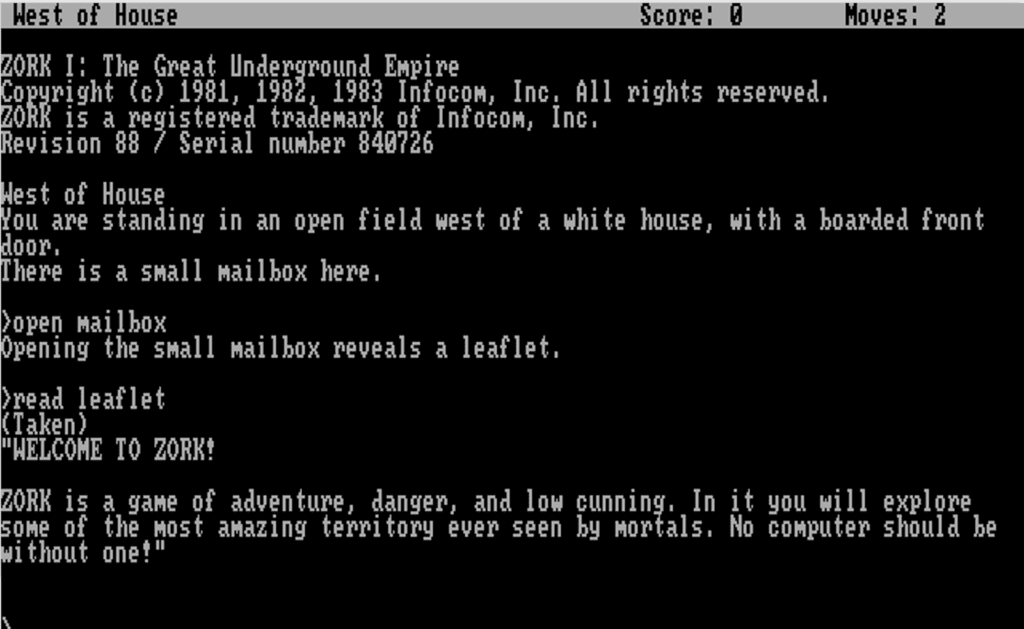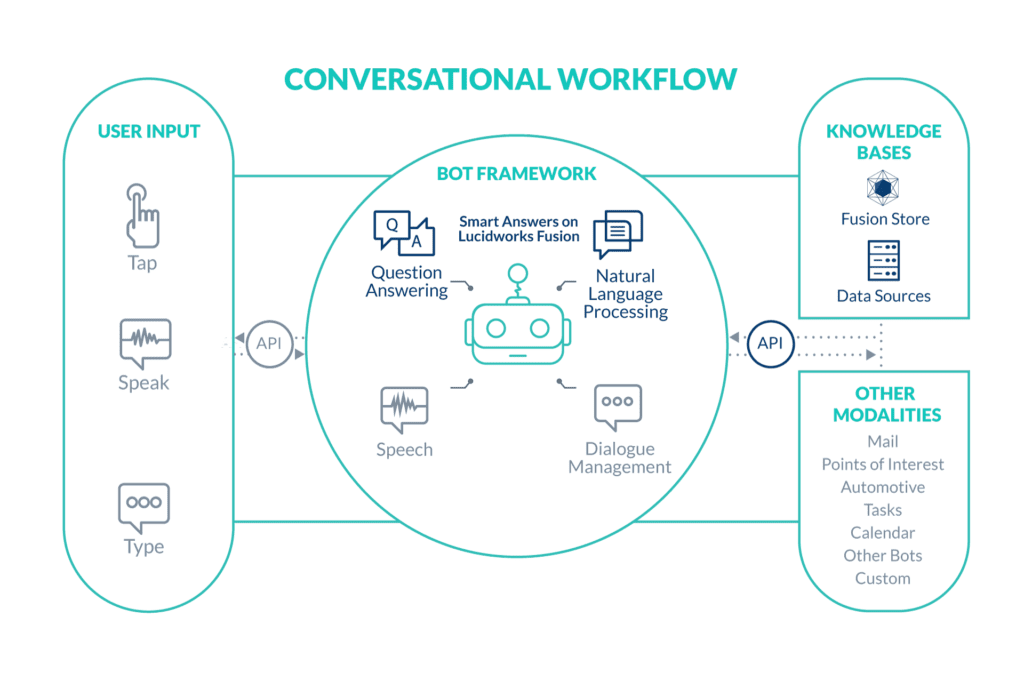The COVID-19 Contact Crunch: More Questions & Fewer Available Agents
VP of Product Marketing, Justin Sears, recaps a conversation with Matt Wujciak for Customer Contact Week 2020

As a speaker at Customer Contact Week 2020, I had the pleasure of talking with Matt Wujciak of Customer Management Practice, a division of IQCP. We had a conversation about one of the ways that work was changing before COVID-19, specifically the rise of chatbots and virtual assistants as an effective way to deflect support tickets and promote customer self-service.
The COVID-19 pandemic both accelerated the need for intelligent platforms that can power more “human” self-service conversations, and also made clear the cost of not having one in place. Lucidworks moved up the launch of our new product, Smart Answers, to meet the urgent customer support demands made plain by COVID-19.
Conversational Platforms, When Remote Channels Are The Only Channels
Building on our leadership in Cognitive Search and Insight Engines product categories, Lucidworks had been working on Smart Answers for more than a year before the COVID-19 pandemic started. We were planning to launch it later this summer or in the fall.
Smart Answers is not a chatbot or virtual assistant. You can think of it as middleware that makes those types of applications self-learning. With Smart Answers and its deep learning models, conversational platforms teach themselves how to feel far more human and deliver the right answers to natural language questions. We built our new application, Smart Answers, as an add-on to Fusion, because our customers asked us for something that brings search with deep learning to their conversational frameworks.
However, once COVID broke out, two things changed very quickly: millions of people began working from home for the first time and millions of people stopped going to retail spaces for everyday purchases. We moved up the Smart Answers launch by about six weeks so our customers could use the Smart Answers to better care for their employees and customers during these tough times.
Why a New Approach Was Needed: Deep Learning’s All Grown Up
Most legacy self-service knowledge solutions (Knowledge Bases, FAQs, Chatbots and Virtual Assistants) suffer from the same limitation: they are static, rules-based systems. We teach young children rules (e.g. “Keep your napkin on your lap” and “Look both ways before you cross the street”) because they haven’t matured enough to be self-aware and self-learning. Without that “deep learning” maturity, it would be impossible to ask kids to take on more complex tasks. As they matured, we wouldn’t be able to write enough rules for them, and soon they would be thrown out of restaurants or fall victim to traffic accidents.
But we haven’t treated our conversational technologies with the same level of care. For example, a company might take the top twenty questions that they get tired of answering over and over and over again in the contact center and push out canned answers to those questions through a self-serve interface. Here’s the problem: if your customers can answer some of their questions with a chatbot, they’re going to try to answer all of them with a chatbot. Suddenly, you have to write an infinite number of rules.
Smart Answers gets more powerful the more it’s used, not more difficult to sustain like an FAQ.
From Zork to C-3PO and Beyond: Automated Conversations with Contextual Awareness
In my session with Matt, I went into some detail on why Smart Answers is better than a rules-based bot. You can read all about the facts on the Smart Answers Product Detail Page or read on for the Zork metaphor I shared with Matt.
There used to be a question-answer interactive fiction game from the 1980s called Zork. It was a game of endless repeated questions, trying to find out what the computer knows about a world that you’re exploring. If you get the question exactly perfect, you get to move forward. Otherwise, you have to ask another question. It was 100% rule-based, and it required 1000% the patience possessed by most 12-year-olds.

We’ve all been “Zorked” by chatbots or virtual assistants. We ask for the weather in a city, but the bot doesn’t understand the very important context contained in the phrase “this weekend.” Or a bot uses the rhetorical device of, “How would you describe [something complex] to your grandmother.” You reply that your grandmother’s no longer living, and the bot responds with enthusiasm and a thumbs up emoji. Clever, but not wise.
To be clear, Smart Answers is not yet C-3PO, but C-3PO was fiction (a thin actor in a metal suit). Smart Answers takes us down the path to better self-service, and it’s far, far better than the status quo.

Smart Answers ships with pre-built machine learning models that have already been trained on public sources like Wikipedia. Our clients can launch Smart Answers, and from the first minute, it begins learning how to answer the precise, company-specific questions that your customers ask you.
Smart Answers takes advantage of Fusion’s operational pipelines for indexing and queries, to help you scale your question-answering systems using the same natural language processing and intent prediction that we’ve honed powering search at some of the largest organizations.
APIs make it easy to integrate Smart Answers with your existing chatbot frameworks. You don’t need to rip anything out. Rather, your existing conversational platforms work better, with less maintenance and upkeep.
Smart Answers’ low-code UI makes it easy for all of us not trained in data science to manage our own question-answering system and improve our existing chatbot or virtual assistant. It’s like a video game, with the prize being happy customers.
At the end of our conversation, Matt asked me to predict the future. Specifically, he asked me “what will stick” after the pandemic subsides and things return to a more normal state. I talked about how our CEO, Will Hayes, has been urging Lucidworks employees to “slow down, in order to move fast.”
What this economic pause and shelter-in-place has shown each of us is that there is such a thing as unsustainable velocity. If we don’t slow down and focus on the experiences that we’re creating with our friends and family, or through our work, we can lose sight of why we’re running so quickly all the time. I don’t know how much things will actually slow down, once there’s a vaccine for COVID or herd immunity, but I do think that we’ll demand more meaningful experiences, and we won’t put up with service that wastes our precious time.
Contact us to learn more about how Fusion with Smart Answers can help you provide the right type of experience for your customers and colleagues.
LEARN MORE
Contact us today to learn how Lucidworks can help your team create powerful search and discovery applications for your customers and employees.